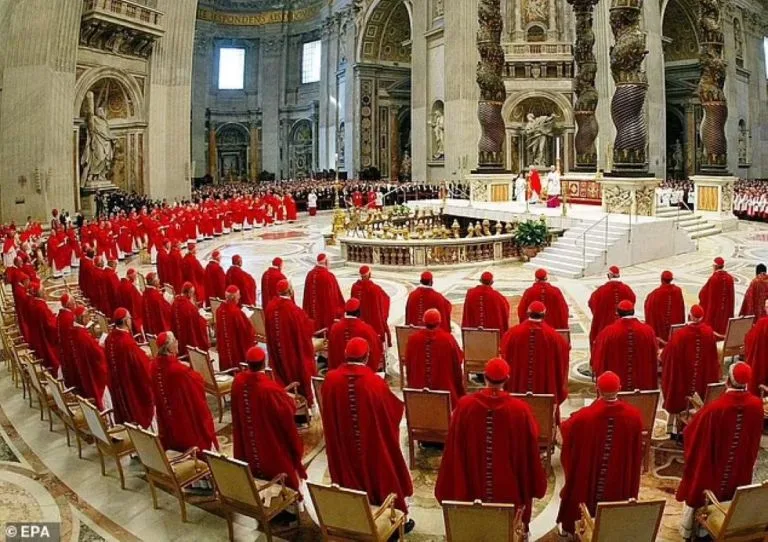… With the death of a pope, attention shifts to the most secretive democratic process on Earth—one cloaked in centuries-old ritual and global intrigueAs the Roman Catholic Church prepares to elect a new pope, the world enters a period of solemn anticipation marked by ritual, secrecy, and centuries of tradition.While modern media dramatisations—such as the Oscar-winning film Conclave—have captured public imagination, the real-life process remains one of the most cloistered decision-making events in global religion and politics.
The conclave—from the Latin cum clave, meaning “with key”—will convene at least 15 days after the Pope’s death to allow time for the College of Cardinals, the Church’s highest-ranking prelates under 80 years of age, to assemble from around the world.The 120 cardinal-electors will live within the Vatican at the Domus Sanctae Marthae (St Martha’s House) during the election, strictly cut off from the outside world.They will walk in solemn procession each day to the Sistine Chapel, where the voting takes place under Michelangelo’s frescoed ceiling.As per centuries-old protocol, cardinals are forbidden from communicating externally, accessing media, or forming alliances—a rule that, if broken, carries the penalty of excommunication.A Tradition Rooted in Ceremony and Global RelevanceThe process begins with the Camerlengo, or Chamberlain of the Holy Roman Church, officially confirming the Pope’s death in the presence of senior Vatican officials. What follows is nine days of mourning and ceremonial rites, during which the deceased pontiff lies in state in St Peter’s Basilica.In contrast to Hollywood fiction, no priests or nuns are allowed to swarm over the Pope’s body, and he is certainly not laid out in pyjamas.
These dramatisations exaggerate for effect, but in reality, every stage of the papal transition is meticulously choreographed, reflecting a balance between religious symbolism and institutional continuity.Once the conclave begins, the cardinals cast their votes in secrecy. If a two-thirds majority is reached, a new pontiff is declared. If not, repeated rounds of voting occur—potentially over several days—until consensus is achieved.The process is so cloaked in confidentiality that even the traditional white smoke from the Sistine Chapel chimney, indicating a successful vote, is not a canonical requirement, though it remains a cherished symbol.
Modern Challenges to an Ancient Election
While the 2013 election of Pope Francis (Cardinal Jorge Mario Bergoglio) took only two days and five ballots, the Church’s past tells of lengthier deliberations. The longest conclave in history lasted 34 months—from 1268 to 1271—underscoring how difficult consensus can be in a global institution with vast cultural, ideological, and geopolitical dimensions.In today’s context, the choice of a new pope carries far-reaching implications beyond spiritual leadership. The Catholic Church commands influence across global development, financial institutions, diplomatic relations, and moral discourse on issues such as climate change, migration, social justice, and economic inequality.
As the world faces increasing religious polarisation, declining church attendance in the West, and rapid Catholic growth in the Global South, many observers expect the cardinals to elect a pontiff who reflects a broader demographic and theological representation of the global Church.Africa and Asia, home to the Church’s fastest-growing congregations, are emerging as key regions in the strategic outlook of the Vatican.
Who Will Be the Next Pope?
While technically the cardinals can elect any baptised male Catholic, tradition has kept the decision within their own ranks. Names from Africa, Latin America, and Asia are said to be under quiet consideration, but no frontrunner has emerged publicly, as expected in a process where silence is not only revered but enforced.Regardless of the outcome, the election will be a moment of deep significance not only for the 1.3 billion Catholics worldwide but also for global leaders tracking the Church’s geopolitical role. Whether the next pope steers toward tradition or reform, the economic, political, and diplomatic ripple effects will extend far beyond Vatican City.

